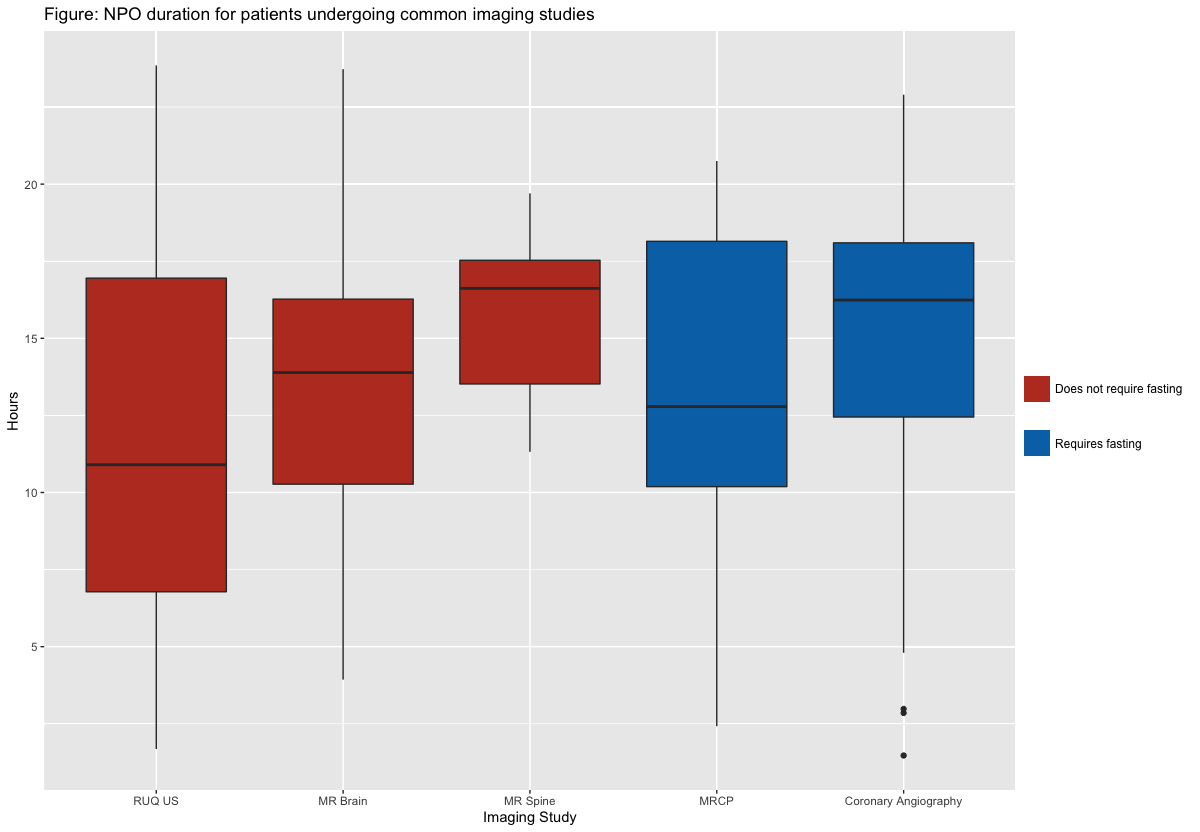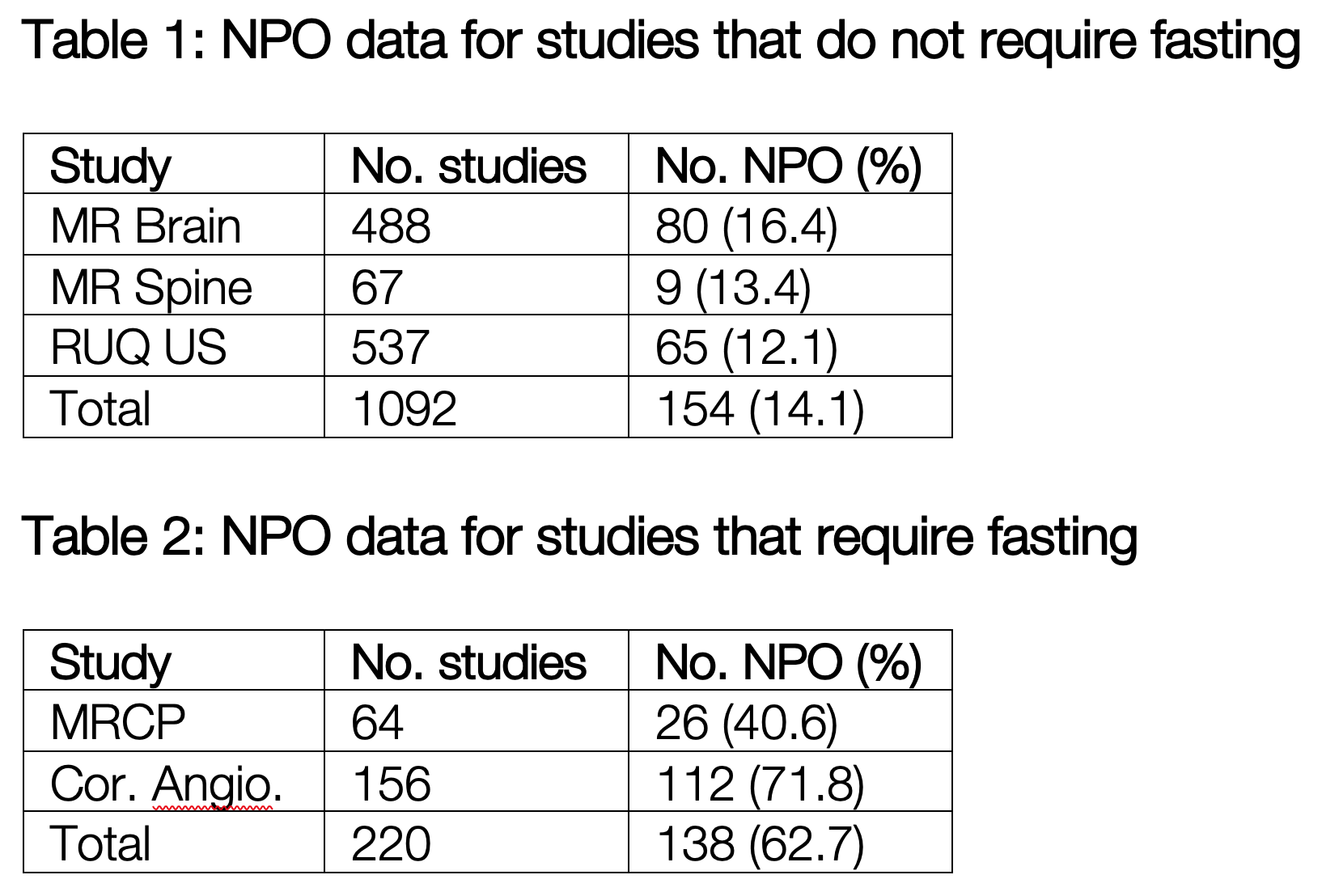Background: Patients are frequently ordered to fast while hospitalized. Though these “nil per os” (NPO) orders are often placed for sound clinical reasons (e.g. small bowel obstruction), they are also frequently placed in preparation for imaging studies or procedures to reduce the theoretical risk of aspiration. There is often a great deal of confusion among clinicians about which studies require fasting. There is also uncertainty about the appropriate duration of fasting despite current American Society of Anesthesiologists guidelines advising patients to avoid solid foods for 6 hours, and clear liquids for 2 hours before elective procedures. As a result, hospitalized patients are commonly subjected to unnecessary and/or prolonged periods of fasting. In addition to decreased patient satisfaction, this problem can lead to avoidable complications such as hypoglycemia and malnutrition. We sought to investigate the frequency and duration of NPO orders prior to a variety of common imaging studies at a large university hospital.
Methods: Data were collected for all patients admitted to an adult medicine service from January 1, 2018 to March 31, 2018 that underwent one of five common studies; 3 of which do not require fasting (right upper quadrant ultrasound (RUQ US), magnetic resonance imaging (MRI) of the brain, and MRI of the spine) and 2 that require fasting (magnetic resonance cholangiopancreatography (MRCP) and coronary angiography). Timestamps of studies (defined as the time they occurred) were collected. Timestamps and the duration of NPO orders were also collected. Duration of fasting was defined as the time the NPO order was placed to the time it was replaced with a diet order. Patients were defined as “NPO for study” if they were made NPO prior to the imaging study, completed the study, and then had a diet ordered. Patients were not counted as “NPO for study” if they were fasting for more than 24 hours, as it was assumed they were fasting for a clinical reason other than the study. Statistical analysis was completed with the software program R.
Results: A total of 1175 patients were included in our study. Among these patients, a total of 1312 studies were performed. For the 537 RUQ US studies, 65 patients (12%) were made NPO with an average fasting duration of 11.8 hours. For the 488 brain MRI studies, 80 patients (16%) were made NPO with an average fasting duration of 13.6 hours. For the 67 spine MRI studies, 9 patients (13%) were made NPO with an average fasting duration of 15.7 hours. For the 64 MRCP studies, 26 patients (41%) were made NPO with an average fasting duration of 12.9 hours. For the 156 coronary angiography studies, 112 patients (72%) were made NPO with an average fasting duration of 15.0 hours. Distribution of data is displayed in the figure (including median and interquartile ranges). Of the 1092 studies performed that did not require fasting, 154 patients were made NPO (14.1%).
Conclusions: This study highlights a number of issues regarding NPO orders for hospitalized patients undergoing a variety of common imaging studies. First, there is a striking number of patients who are ordered to be NPO status, even if the study does not require fasting (a total of 154 patients [14%] in our study). Furthermore, the average duration of NPO time for each of the five studies queried was significantly longer than recommended by national guidelines. Standardizing NPO ordering practices within the hospital setting seems prudent to avoid unnecessary and prolonged periods of patient fasting.


